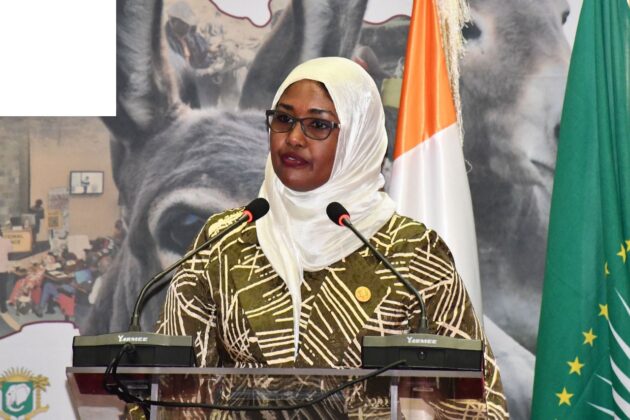
AU-IBAR Leads Drive to Safeguard Donkeys With New Continental Strategy » Capital News
ABIDJAN, Côte d’Ivoire, Jun 26 – Africa has taken a major step toward safeguarding the future of its donkey population, as leaders, experts, and stakeholders from across the continent gather in Abidjan for the Second Pan-African Donkey Conference (PADCO-2).
At the heart of this high-level meeting is the validation of the Pan-African Strategy for the Preservation, Welfare and Sustainable Utilization of Donkeys in Africa, a landmark document expected to shape policy and action for years to come.
The conference, convened by the African Union’s InterAfrican Bureau for Animal Resources (AU-IBAR) in collaboration with Brooke Hospital for Animals and other partners, brings together Member States, Regional Economic Communities (RECs), civil society, international organizations, academia, and representatives of the donkey farming community.
Their collective aim is to confront the rising threats to donkeys—most urgently, their exploitation through unregulated slaughter and the booming skin trade—and to lay the foundation for long-term protection and integration into national development frameworks.
Currently, Africa is home to more than 13 million donkeys, representing over 36% of the continent’s working animals, yet their value remains largely unrecognized in official livestock development programs.
From transporting water and agricultural goods to supporting household incomes, donkeys are essential to rural economies. However, they continue to be left out of policies, veterinary care systems, and investment plans.
The upcoming validation of the continental strategy marks a turning point. It comes after two years of intense consultation following the 2022 Dar es Salaam Declaration, where African leaders called for a moratorium on the commercial slaughter of donkeys and urged the development of a coordinated, science-based response to the crisis.
“This is not just a technical meeting. It’s a moment for Africa to decide whether it will protect an animal that sustains millions or allow it to disappear in silence,” said African Union Commissioner for Agriculture, Rural Development, Blue Economy and Sustainable Environment, Moses Vilakati.
The strategy outlines key actions for Member States, including integrating donkeys into national livestock policies, enforcing bans on commercial slaughter, investing in ethical breeding programs, and building stronger data systems to track donkey populations and productivity.
At present, only 25 out of 56 African countries have submitted data on donkey populations, making coordinated planning difficult.
For example, while Chad alone accounts for more than 31% of Africa’s donkeys, other countries like Gabon, Liberia, and São Tomé report almost no populations.
Health data also paints a concerning picture. Diseases like tetanus, African Horse Sickness, anthrax, and parasitic infections are major threats, yet access to veterinary services is extremely limited—particularly in rural areas where donkeys are most needed.
Africa has 11,120 veterinary doctors and 20,290 paraprofessionals, but 79% of rural veterinary care relies on paraprofessionals, many of whom lack the tools and training to manage complex cases.
In countries like Cameroon, Guinea-Bissau, and Sierra Leone, there are few to no registered veterinary doctors or paraprofessionals at all.
The conference will also include dialogue on legislation, policy harmonization, and advocacy strategies to support implementation of the donkey strategy at both national and regional levels.
Delegates will review current reproduction rates, trade dynamics, health burdens, and the lack of enforcement around existing bans.
Countries such as Kenya, Uganda, Senegal, Botswana, and Tanzania were applauded during the opening session for having already taken legislative or administrative steps to ban donkey slaughter or restrict exports of their skins.
Once validated, the strategy will be presented to the Specialized Technical Committee on Agriculture, Rural Development, Water and Environment (STC-ARDWE), and eventually to the Heads of State and Government of the African Union for formal endorsement.
There is cautious optimism that the outcome of PADCO-2 will lead to the launch of an Africa Donkey Welfare and Preservation Program, championed by AU-IBAR, with the support of international donors and development partners.